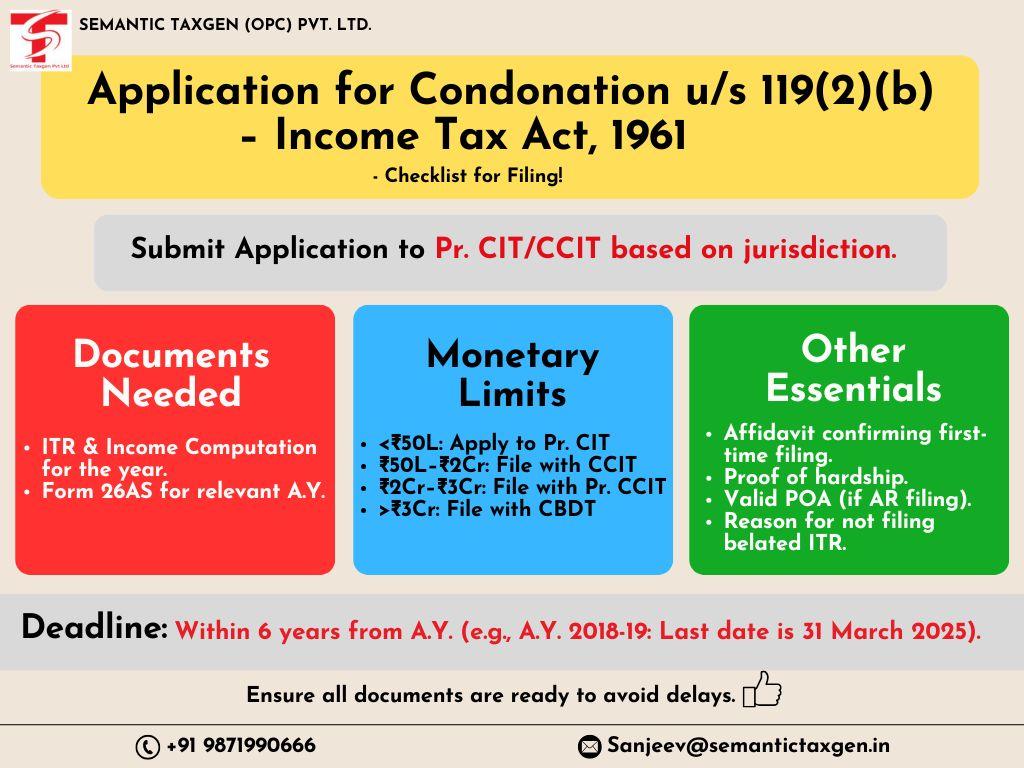
The Income Tax Act, 1961 allows taxpayers to seek relief for delays in filing Income Tax Returns (ITRs) under certain conditions. Section 119(2)(b) enables individuals and entities to apply for condonation of delay by submitting an application to the appropriate income tax authority based on jurisdiction and monetary limits. Here’s a comprehensive guide to ensure a smooth filing process.
Section 119(2)(b) of the Income Tax Act, 1961 empowers income tax authorities to condone delays in filing ITRs if there is a genuine reason and hardship caused to the taxpayer.
Submit your application to the appropriate authority based on the monetary limits:
Ensure you have the following documents:
Write a concise and clear application addressed to the appropriate authority, explaining the delay, its reasons, and attaching the required documents.
A sworn statement confirming it is your first attempt to file the return ensures the credibility of your case.
Clearly explain the circumstances leading to the delay. Examples include medical emergencies, loss of financial records, or unforeseen personal hardships.
Provide evidence showing how the delay caused genuine hardship, such as financial penalties or inability to claim a tax refund.
Ensure you apply to the correct authority based on the quantum of income involved to avoid rejection due to jurisdictional errors.
Once the application is accepted, promptly file your ITR to avoid further complications.
Condonation of delay allows taxpayers to:
Filing an application under Section 119(2)(b) can help resolve issues stemming from delayed ITR submissions. By adhering to the outlined steps, ensuring proper documentation, and providing genuine reasons for the delay, taxpayers can increase the chances of approval.
For professional assistance, consult a tax advisor or authorized representative to streamline the process.
DISCLAIMER: The information provided in this article is intended for general informational purposes only and is based on the latest guidelines and regulations. While we strive to ensure the accuracy and completeness of the information, it may not reflect the most current legal or regulatory changes. Taxpayers are advised to consult with a qualified tax professional or you may contact to our tax advisor team through call +91-9871990777 or info@semantictaxgen.in
© 2013-25 Semantic Taxgen Pvt Ltd - All Rights Reserved